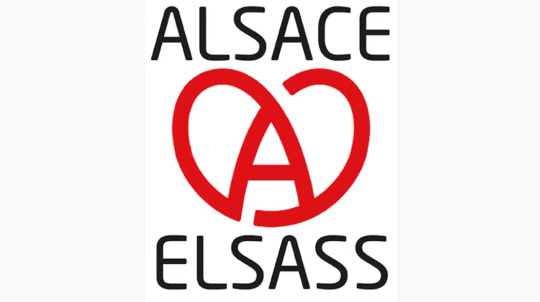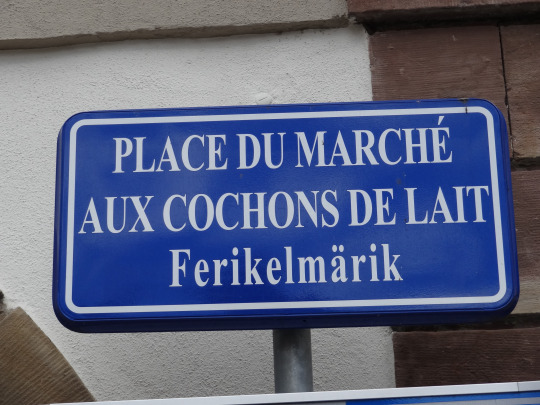#when so many of the adults in their lives (esp. in a really rural area like this) are teaching them hateful things
Text
as a nonbinary person who works primarily with kindergarteners whenever someone says kids are confused by trans people i get so annoyed because they’re entirely wrong. the kids do not give one singular fuck about it they just take turns calling me miss and mr. it’s the adults that suck
#my supervisor being like ‘no when you talk to HER you say MISS aj’ stfu dude. we are chillin stop making them weird about it#they were asking me if i’m a boy or girl yesterday and i said ‘oh im just whatever’#and today mikayla said ‘i figured it out she’s a girl because she sounds like a girl!’ and noah said ‘that’s not right mikayla people can#be whatever they want’ 😭 so stinkin cute.#mikayla asked if she can still call me miss aj and i said yea but its just so heartwarming that all the kids are so good with it#when so many of the adults in their lives (esp. in a really rural area like this) are teaching them hateful things#they are naturally good and do not care#am rambling but im just wowed that even the kids who are ignorant about it get right on board when you explain it to them#they are more concerned about me cutting my hair than going by mr lol. and even then when i say#i did it to stay cool in the summer they’re like woaaa that’s such a good idea#kids r awesome 👍 i am going to miss them so so much when i leave 😭
3 notes
·
View notes
Text
Hopefully this puts things in greater perspective because some tourists just don’t get it and need to hear this. For those who are curious and looking to travel in the future I hope you find this is informative! :) We could all use more perspective on linguistics and traveling imho. I have made some of these mistakes in the past too. We can all learn to be better guests/tourists.
This mindset people have that not only is it okay for tourists to exploit and mistreat local populations, but it’s something that should be encouraged is wrong. You’re not entitled to anything special as a tourist just because you have enough money to play around somewhere “exotic” for a few weeks. Regardless of where people travel to. As a guest in someone else’s home you should put more effort into not being a total asshat. You will have a better time and you might learn something cool along the way.
I will mostly be using France as an example since I live here and have more insight, but everything I say applies outside of France as well.
Note: This information only applies to tourists. Immigrants and refugees are a unique situation and thus face different challenges and have different needs. A tourist chooses where to go and has time (and money) to plan for their trip, which is often only a few weeks or days. Immigrants and refugees often don’t have that same luxury and remain in the country for far longer. (in many cases permanently) Moving to a country places a greater linguistic and cultural demand on an individual. Remember to check your privilege. tourism =/= immigration/asylum.
A) English is not the only language in existence. It might be a widely spoken language, but it’s not the most widely spoken language (that honor goes to Chinese) nor is it the only lingua franca. Chinese, Hindu, Spanish, French, and Arabic are all widely spoken across multiple borders and where you are on the planet will obviously dictate which one of these people go with. If you expect that to be English because your sphere of the internet happens to put you in that bubble of “my language or bust” ignorance then like... that’s on you pal. Get with the times and stop assuming everyone should just speak English.
English speakers are not the only tourists and English, though widely used, is not the only other language a person might need. I have a friend from Laos who speaks absolutely no English. He doesn’t need it and never has. (even now) He speaks Lao (the regional dialects can be as different as Thai is from Laotian btw), Chinese, a bit of Thai, and French because they still use a lot of French for business dealings there. (something I didn’t know ngl) Assuming he should just speak English because “everyone else does” is ignorant. It’s rude. It puts no thought into his situation. It’s entitled. He’s traveled to visit friends in England and he has an English phrase book. He doesn’t need a lot of English so like... the phrase book is absolutely perfect. Most of what he does in England is sight see and speak Chinese with his friends. Be more like my friend from Laos.
B) Official languages may not be the only language a country speaks within its borders. Regional and native languages exist and expecting the locals to speak a 3rd language on top of all that is unbelievably entitled.
France has a number of them. There are people who are born and raised in France who don’t speak French in their day to day life. (or at all) Basque, Breton, Occitan, Alsatian, Yiddish, Ladino, Arabic and a number of others are all spoken within French borders. Many are at risk of being permanently lost (that’s why our new regional language law is important btw) and as a result a greater emphasis is placed on preserving them as opposed to learning something new. Most people have to learn the official language as it’s the only language a lot of countries will accept for paperwork, but anything else is up to the individual and you can suck an egg if you don’t like that. (this also applies to immigrants and refugees btw)
Heck there are places in the US where people don’t even speak English day to day! Some places actually speak French or Spanish. I heard more Spanish in my day to day life than I did English where I grew up in NC! (moved to Florida and Spanish exploded. loved it!)
C) Borders are a thing. People working and living across borders exist and English is often not the language they chose to go with as a result. France borders Germany, Spain, Italy, Belgium, England, and Switzerland. People who share these borders often choose to go with these languages. English is in there, but please note it’s not the only one.
D) Culturally speaking a country may not like [insert common language here] and as a result may refuse to speak it. That’s entirely their choice. If you don’t like that then don’t visit the country. It’s really that easy.
Colonialism is often a major factor at play in these situations. Respect that choice. You do not get a say in how people reclaim their identity.
As for France? This might come as a shock to some people, but France doesn’t like England. I’m 100% certain these two places exist solely to punch each other in the nuts. (ball tap. an international past time) As a result getting English people to speak French or French people to speak English is about as easy as pulling your own teeth. I’ve been spit on for speaking English because people here just assume I’m from England or they hate “annoying Americans” and after seeing how y’all responded to the last post I made... yeah I totally get it now. Granted, that’s no excuse for someone being hostile, but it is something to keep in mind when you visit and applies to more than just France too.
E) Retail workers and small shop owners don’t owe you shit. You have absolutely no right waltzing into a shop and demanding the staff speak your language (I don’t care how common it is) for the two weeks you’ve decided to play around in their home. Always ask them first. If they can’t or choose not to then tough luck. This is why a phrase book is important!

Retail workers and small shop owners get treated like shit enough. Some of y’all have never worked retail a day in your life and WOW does it show. Please respect retail workers and small shop owners. You don’t know what their day or life has been like. If they’re tired and don’t want to speak to you in a foreign language then that’s their right. I have had no issues using my phone or a phrase book to help communicate concepts when there is a language barrier. (and I fucking live in France. I’m not even visiting)
Emergencies also happen and a phrase book or medical card in the native and/or official language is absolutely essential! Even if you just have an allergy to something! This is a great way to stay safe!
When you visit another country being aware of and researching cultural differences includes linguistic differences. Tourists are guests. You don’t live here, you don’t get a say. Remember, learning a second language (esp if you don’t use it often) is really hard. If you’re visiting a country do not expect them to just use whatever language you speak.
Mind you a phrase book is also important because people within a country may not have a strong grasp on English even if they do speak it. You can very easily get lost or injured without a phrase book to help you. These things allow you to better experience a country and communicate without actually having to learn the entire language... or any of it. And, once again, they exist for free online!
You do not need to learn an entire language to visit somewhere, but you need to be prepared for there to be a barrier. People assuming I mean you need to learn a whole language are uh... really something else. Like do you guys think half the people bending over backwards to communicate with you know the full language? Go ahead. Fuck around and find out. ;)
Obviously I’m not saying you should be treated poorly when visiting if you don’t know the language. Unfortunately no matter how much effort you put in there will always be someone who’s a jerk and I’m sorry for that. All I’m saying is as a tourist you owe it to yourself and others to be better prepared. Trust me. You’ll have a better time in the end. (and if you did the research you’d find that Paris is not the best first place to visit... even if you’re french lol)
https://www.youtube.com/watch?v=GS64ZT4eWUA
Please watch this guy’s video. It is hilarious and touches on a lot of the same points I just made. Thank you for your time. :)
----------------
Cultural tidbit for those who are curious about where I live in France:
I live in Alsace currently! (moved from Lyon, but my spouse is from here) In Alsace you might meet people who speak English, but it’s also entirely likely you won’t! Alsace is also a very tourist heavy area because it looks like a German fairy tale and has a lot of tiny villages with cool stuff to do! I highly recommend visiting here over Paris! We have so many storks! (clackclackclack)


Our logo is a pretzel!

That being said, Alsace has its own regional language!


It’s not uncommon to see bilingual signage or to pass someone on the street and hear them speaking Alsatian. You’ll usually hear it from older people, children, or those from rural areas. It’s really fun to listen to and absolutely wild to see written on museum signs!
Kids here will start school learning French, regardless of what they speak at home, which has resulted in a downswing of Alsatian speakers in recent years. That’s why the new regional language law I mentioned waaaaaay above is so important. It’ll allow schools to teach most of the day in Alsatian instead of French with the goal being fully bilingual adults! :)
As of right now, most kids here choose German or English (depending on the school) as their second language. Some kids pick Alsatian and honestly? Good for them! I’m glad!
256 notes
·
View notes